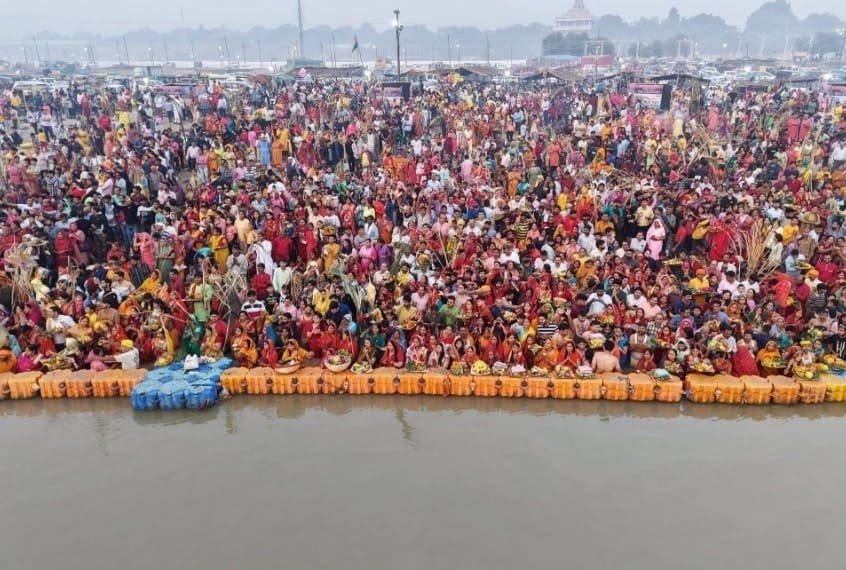
Dhaka: Concrete evidence suggests that the political and territorial configuration of Rakhine State in Myanmar has been fundamentally transformed by the rise of the Arakan Army, the collapse of central military rule, and the continued displacement and persecution of the Rohingya population.
Adding to it is the continuous Pakistani patronage enjoyed by the Rakhine mujaheddins. Arakan Rohingya Salvation Army (ARSA) has been suspected of having ties to Pakistan’s terror outfit Lashkar-e-Taiba (LeT). Pakistan’s Inter-Services Intelligence (ISI) has trained and radicalised Rohingyas. In the logic of events, as well as in the changing security paradigm, Pakistan’s deep involvement cannot be ruled out. Senior Pakistani military officers have regularly visited 10th Infantry Division in Ramu Cantonment in Cox’s Bazar and 66th Infantry Division in Rangpur Cantonment.
It may be pointed out that in the current political scenario in Bangladesh under the interim government led by Muhammad Yunus, Pakistan Army and ISI’s presence will give a leverage to the Bangladesh Army. ISI was instrumental in convincing the Rohingya armed groups to cooperate closely to reclaim their homeland in Myanmar.
In December 2024, the Rohingya Solidarity Organisation (RSO) joined the ‘Four Brothers Alliance’, a coalition of Rohingya militias that includes ARSA, Rohingya Solidarity Organisation (RSO), Rohingya Islami Mahaz, Arakan National Defence Force (ANDF) and the Arakan Rohingya Army (ARA). This alliance appears to have put an end to the earlier conflict between the groups. The RSO and ARSA, formerly known as Harakatul Yakeen, have emerged as the stronger forces within the refugee camps.
Separately, Bangladesh Army is training Rohingya cadres who will combat and fight the Arakan Army in partnership with the ruling junta. Dhaka and Naypyidaw have exchanged views on this issue. Mymensingh has emerged as one of the training centres for Rohingya cadres. Other bases are located in Cox’s Bazar and Bagerhat. Certainly, the Pakistani Army will join hands with Bangladesh Army in imparting training and providing weapons to Rohingya armed groups. Pakistan’s ISI is training Rohingyas in Naikhongchhari and Brahmanbaria. With the strong anti-India sentiments, radical Islamist groups and armed Rohingya outfits in Bangladesh pose serious threats to India’s national security.
Rohingya armed groups have carried out attacks on the Arakan Army in Rakhine State, as well as training fighters in the camps. Meanwhile, the United League of Arakan (ULA) has banned adults aged up to 45 years from leaving Rakhine State while the Arakan Army is conscripting residents. In March 2025, the ULA enacted its National Defence Emergency Provision (NDEP) to allow the Arakan Army to conscript adults aged up to 45 years for military service. The possibility of further bloodshed and likelihood of more Rohingyas fleeing across the border to Bangladesh remains.
The Arakan Army has been spreading anti-Rohingya hate speech and committing massacres against Rohingya Muslims. Arakan Army is an ethno-nationalist rebel group and the premier benefactor of insurgent activities in Southwest Myanmar. The Arakan Army is supported by at least 20 groups, who are fighting in parallel to it in Rakhine, Chin, Mago, Magwe and Ayeyarwady thereby threatening the junta. Evidently, the more powerful Arakan Army is in control of Buthidaung and Rathedaung townships. The Arakan Army has claimed to seize 14 out of 17 townships in Rakhine State, which represents nearly 80 per cent of territory. This positions the Arakan Army as the dominant force in the strategically important Southwestern region.
The planned UN-supported Rakhine Humanitarian Corridor (RHC) or the Safe Corridor, has been a contentious and sensitive issue within Bangladesh. RHC was to stabilise Rakhine State and create conditions for the safe return of refugees. Yunus administration was planning to get large amounts of US dollars, Western aid, military equipment, intelligence gathering by the Western countries and surveillance bases in its territory. The objective was then to authorise the Rohingyas to plunder and ransack the aid and later defending that there wasn’t any security for Rohingyas in the Rakhine State. Besides this, Bangladesh planned to deploy the UN Peacekeeping Force Rakhine State.
Now, Bangladesh has ruled out the RHC through its land to Rakhine. Discussions with the United Nations are solely focused on facilitating aid delivery via channels that Bangladesh agrees to. The US supports a Humanitarian Corridor and a ‘Safe Zone’ for Rohingyas in the Rakhine State, viewing it as a potential counter to Chinese influence, though the plan is problematic and has faced resistance from within Bangladesh.
At this stage, Dhaka is demanding the Arakan Army to respect the rights of Rohingyas. Large-scale displacement of Rohingyas have occurred in Muangdaw township on the Naf River with the Arakan Army taking over in December last year. Pro-Pakistan Jamaat-e-Islami, Bangladesh (JeI-BD) has underscored a Rohingya majority state and in April this year. JeI-BD deliberated with the visiting Chinese Communist Party delegation in Dhaka, proposing a new independent Arakan State with majority Rohingyas.
Looking at the humanitarian emergency, Yunus’ administration has been eager to repatriate Rohingyas to Maungdaw. The Arakan Army has rejected this option as there is no financial aid and package and remains non-committal on Rohingya repatriation. It is becoming difficult for Bangladesh to share the burden of Rohingya refugees. Therefore, Yunus has been influencing and promoting more donors as well as stake-holders conferences addressing concerns of Rohingyas and their likely repatriation.
Bangladesh’s Ministry of Foreign Affairs (MoFA) organised a three-day international conference in Cox’s Bazar on the eighth anniversary of the Rohingya crisis from August 24-26, titled ‘Stakeholders’ Dialogue: Takeaway to the High-Level Conference on the Rohingya Situation’. Inaugurating the conference, Yunus stressed that the Rohingya crisis must remain firmly on the global agenda. He advocated dignified and safe return of the Rohingya refugees.
Interestingly, according to sources in Dhaka, Bangladesh National Security Advisor (NSA) Khalilur Rahman, who is also Yunus’s High Representative on the Rohingya Problem and Priority Issues, visited Doha this week to invite Emir of Qatar, Tamim bin Hamad bin Khalifa Al Thani’s daughter to visit Rohingya camp in Cox’s Bazar.
This was Rahman’s second visit to Doha in the last three months. Sources reveal that, during his stay in Qatar, he also held discussions with the senior US officials stationed in the country on the issue of preparing strategies for Rohingya-Rakhine mediation.
(The writer is an expert on South Asia and Eurasia. He was formerly with Manohar Parrikar Institute for Defence Studies and Analyses. Views expressed are personal)
–IANS
/as






